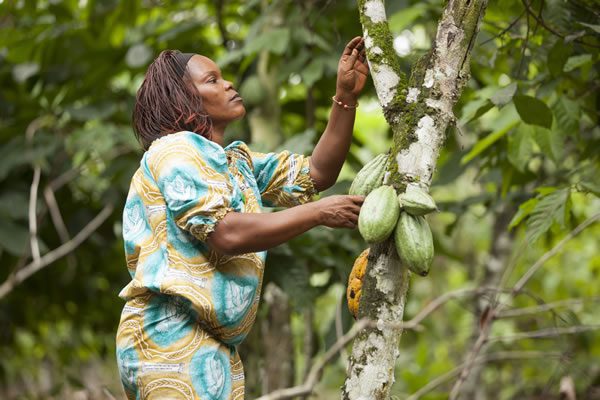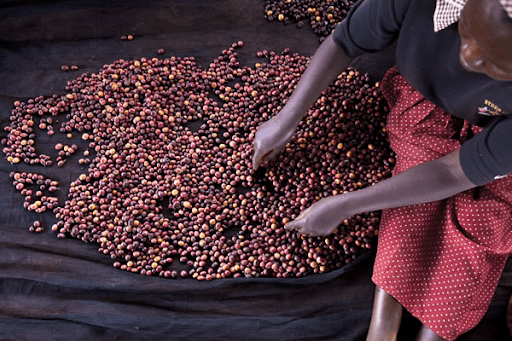
Reese’s Peanut Butter Cups, M&M’s, Kit Kats, Snickers–what do all of these have in common apart from being some of America’s favorite chocolate treats? They all also happen to be produced by two of the country’s largest candy companies–The Hershey Company and Mars, Incorporated. You know their products, but what you may not know is that both companies are out to do good and are making strides toward a better planet.

In terms of market share, Pennsylvania-based chocolate Hershey is America’s largest chocolate manufacturer with 43.3 percent, and Mars is second with 29.8 percent. Hershey’s U.S. sales topped $7 billion out of around $8 billion global sales in 2019. However, Mars, a privately-held company headquartered in Chicago, Illinois, is by far the world’s leading confectionery company with up to $37 billion in annual revenue. Both companies have an extensive list of ongoing social responsibility and sustainability initiatives that make them not just makers of sweets, but also doers of good.
Hershey

Hershey has been a long-time supporter of the Central Pennsylvania Food Bank and this year committed to donating more than $70,000 to the local pantry. Additionally, Hershey has pledged to invest $500 million to improve the livelihoods of farming communities in its cocoa-growing locations by 2030 through its Cocoa For Good program. The program was announced in 2018 and “focuses investments and work in four key areas: nourishing children, elevating youth, prospering communities and preserving ecosystems.”
“Under Cocoa For Good, we continue to work toward a future where there’s a long-term, sustainable cocoa supply, the natural environment is protected, and we are creating better lives for everyone,” said Hershey Chief Procurement Officer Susanna Zhu.
Notably, 47 percent of Hershey’s facilities send zero waste to landfills, and the company states in its 2019 sustainability report that it’s planted nearly 1.95 million trees for reforestation in the US and abroad. Five years ago Hershey committed to cut its greenhouses gasses, water consumption, and waste by 25 percent and reduce its packaging by 25 million pounds. Additionally, the company is exploring packaging that is more eco-friendly and today the majority of its packaging is recyclable.
Hershey Director of Corporate Communications Jeff Beckman said in a statement to Consensus, “We know this commitment to sustainability is important to the consumers who love our products and it’s important to us. Because we are also consumers of our products. We share them with pride with our friends and families, and we want to feel just as good about our products, where they came from, how they were made and the impact they have on our planet and communities, as all other consumers who buy our products.”
“Presently, 80 percent of our product packaging by weight is recyclable,” Hershey reported. “We have also saved 23,612,000 pounds of packaging cumulatively since 2015, putting us at approximately 94 percent of our 2025 goal. This progress was driven by re-designing existing packaging for sustainability improvements such as lightweighting and eliminating materials. For example, Hershey pioneered display-ready packaging, which allowed store display cases to be sent in a one-piece design and eliminated the need for cover packaging.”
Mars
According to the Mars 2019 Sustainable in a Generation Plan scorecard, 108,000 farmers are covered by Mars’ “programs that combine good agricultural practices, access to inputs, the latest plant science, and/or other ongoing engagement designed to help increase their incomes.” Additionally, Mars says that 169,000 people, including workers, farmers, women, and children, are protected by programs aimed at improving human rights and incomes. The company’s Global Health and Wellbeing Ambition, launched in 2016 puts Mars Food on a trajectory to reach four billion meals delivered by 2021.

This year the company announced a $500,000 donation to the Capital Area Food Bank, which serves the greater Washington, DC, area. Additionally, Mars will donate 308,000 pounds of its Uncle Ben’s brand of rice, valued at around $1 million, to Feeding America. Mars has also made empowering women and protecting children across the world a priority in its farming communities. In conjunction with CARE International, the company supports “savings programs with thousands of women in Côte d’Ivoire and Ghana to advance their economic empowerment.”
Mars has committed to reducing its greenhouse gas emissions by 27 percent and 67 percent by 2025 and 2050 respectively, according to its 2019 scorecard. The company has additional sustainability goals of reducing unsustainable water use by 50 percent by 2025, developing reusable, recyclable, or compostable packaging, and “decreasing virgin plastic use by 25 percent by 2025.” Additionally, it has made investments in infrastructure, unveiling nearly a decade ago its 18-acre solar farm near the company’s Hackettstown, New Jersey factory.
“We recognize a duty to address global challenges that touch our business – from poverty and hunger to climate change and water scarcity,” said Mars Wrigley Vice President of Global Sustainability Alastair Child in a statement to Consensus. “We remain committed to our Sustainable in a Generation Plan, which launched publicly in 2017 and is supported by a $1 billion investment from the business. At Mars, we aim to reduce our environmental impacts in line with what science says is necessary, meaningfully impact the lives of one million people within our supply chain and advance science, innovation, and marketing to help billions of people and their pets lead healthier, happier lives.”
Hershey and Mars both have goals of sourcing 100 percent cage-free eggs in the U.S. market. In January 2020 Hershey reached 100 percent certified and sustainable cocoa. Mars has committed to ensuring all of its cocoa is traceable and responsibly sourced by 2025, and hopes to achieve a deforestation-free cocoa supply chain by 2025.
While today they are competitors, Mars once depended on Hershey for its milk chocolate supply and was at one point even its largest customer. The Hershey Company, established in 1894 by Milton Hershey, introduced the iconic Hershey bar in 1900 and, with its Pennsylvania chocolate factory, made chocolate affordable to the masses. After establishing his Milky Way candy bar in 1923, Mars founder Frank Clarence Mars approached Hershey to supply the chocolate for it. This led to Milky Way’s success, Mars evolving into a national brand, and the rest is history. As Milton Hershey once said, “One is only happy in proportion as he makes others feel happy.” Through their delicious chocolates and do-good initiatives, Hershey and Mars are spreading joy near and far.





